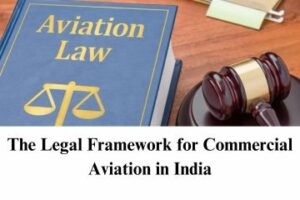Criminalization of Politics
Written by: Ms Shalini Gupta
INTRODUCTION
Politics is defined as the conflict between groups over something they want. There are various types of politics. For example monarchy as well as a republic. The monarchy has the supreme power to do anything they want without thinking about the country. The people living in such a country have no voice of their own. If they do not like the law, they cannot do anything. Republic can be classified as dictatorship, oligarchy and democracy.
A dictatorship is a government ruled by one commander. Whatever the commander decides, becomes a law. It is just like a monarchy. An oligarchy is a government where the country is ruled by few. In a democracy, people living in the country choose their government. India is one of the most democratic countries in the world. Elections are the most important and integral part of politics in a democratic system of governance.
In India, if people want power, then he decides to go into politics. It gives so many powers like making laws as the Government wants, making money etc.
The criminalisation of powers means the involvement of criminals in politics. This means criminals can contest elections. Many people in politics who are not criminals commit a crime using their power. Soe people use their political power to fulfil their undue advantages which lead s to the criminalisation of politics.
Power is frequently defined by political scientists as the ability to influence the behaviour of others with or without resistance.[1] There are also many elected representatives with pending criminal cases against them.
CRIMINALISATION OF POLITICS
Today, politicians have misused the term democracy. Politicians don’t listen to the ordinary people of the country. As we all know, Democracy is a government of the people, by the people and for the people. But these politicians control the powers of police, state money, corruption and even the judgement of the court.
They can even alter the result of the elections. This leads to a great form of dispute resolution. Because of such corrupted politicians, people cannot trust innocent politicians. The reason for the criminals behind the entrance to politics is to gain influence and ensure that cases against them are dropped or not proceeded with.[2]
There are various reasons behind the criminalisation of politics. Various candidates buy the votes of the people to win the elections. Corruption starts from here. The origin of the problem of the criminalisation of politics is mainly the country’s poor governance capacity.[3] Also, there is no law in India that can bar criminals from contesting elections.[4] Many pending cases against the accused are also the reason behind the criminalisation of politics.
LEGAL VIEWS
Goswami committee on electoral reforms in 1990 addressed the need to curb the growing criminal forces in politics.[5] The ‘Vohra committee was constituted in 1993 with an objective to find the extent of criminalisation of politics as well as the prevention of the same.[6]
The report of the Vohra Committee was investigated in the case of Shri Dinesh Trivedi, M.P. & Ors. vs. Union of India & Ors.[7] In Jan Chaukidari v Union of India,[8] Those who are held in preventive detention, police officers and who are held in judicial custody cannot stand for election.
A person shall be ineligible to contest elections unless they file an affidavit declaring their assets along with a declaration whether charges had been framed against them by a criminal court.[9] In Lily Thomas v. the Union of India,[10]the Supreme Court declared under Section 8 (4) of the Representation of the People Act, 1951, (RPA) which allowed legislators a three-month window to appeal against their conviction so their disqualification can be delayed until such appeals exhaust.[11]
In the Union of India vs. the Association for Democratic Reforms[12], Supreme Court held that right to know the criminal past of the election candidates is a fundamental right under Article 19 (1) (a) of the Constitution and that the information was fundamental for the survival of democracy. The decision was upheld in the People’s Union for Civil Liberty vs. Union of India.[13]
In Public Interest Foundation vs. Union of India 2003, Supreme Court firstly decides that it cannot disqualify candidates from contesting elections against whom criminal charges have been framed.
Then SC directed the Election Commission which states that it is important for the political party as well as the candidate contesting the election with criminal antecedents to publish information on website, newspapers and through television channels during the campaign period, before the election to promote transparency and 48 hours of the actual polling.[14]
In the same case, petitions have been filed against the election Commission for not complying with the directions given in 2018. On 13 February 2020, the Supreme Court held that if a political party fails to comply with the orders of the Supreme Court, it will be a contempt of court.
Supreme Court also held that the political party also had to publish the reason behind the selection of criminal antecedents “with reference to the qualifications, achievements and merit of the candidate concerned and not mere winnability at the polls.”[15]
CONCLUSION
The criminalisation of politics has taken back the democracy from the people of India as they mostly do not listen to the ordinary people of India. They make laws that suit them and not to the people of India and through which they can make power and money.
The criminalisation of Indian politics and the consequent cult of guns is the greatest danger that faces Indian democracy today. It is very important to stop electing criminals these days.
The criminal free politics cannot be achieved by Parliament or judiciary alone but it can be achieved by politicians themselves if they stop being selfish and start working for the welfare of the ordinary people. It is also the duty of the people of India to be vigilant and to give votes only to those candidates who are deserving after checking their background.
References
[1] Politics, power and authority, LUMEN, https://courses.lumenlearning.com/boundless-sociology/chapter/politics-power-and-authority/.
[2] Dr. Bhimal Prasad Singh, Electoral Reforms in India-Issues and Challenges, CLOUDFRONT (Mar 31, 2013), https://d1wqtxts1xzle7.cloudfront.net/32337486/issues___challenges.pdf?1384744148=&response-content-disposition=inline%3B+filename%3DElectoral_Reforms_in_India_Issues_and_C.pdf&Expires=1609419697&Signature=fF7yDmEtfkXQHd0g662rcIhOosKFPxVOB6GZM7zUrmoTdo16iew5gcJh3VhGpx0rcN244n1wjmuuSv0B8udmsZH5iy7W~dJP-DYAhKBHjTUGpfEC0j6wGt753h2RjYLRNX72QjrmaPd-SSofuG8tH88bClfqqDSAmkqwLMh~R4md2COTGh~SzAIUFI67wY5ObzAcNb1eTDXBtkLiL4XOjiXxZflcDgQNSzO3V2mrbgrubnigo3BbP66qVrfWYzJwRGBQD2J3ycoEUG0t666r2tWXNiZG9htsdtjBIshl~oyyMn0UNf1frSawqiVkvrADh~06uYREpdhBcS974Qj~GQ__&Key-Pair-Id=APKAJLOHF5GGSLRBV4ZA.
[3] Dignath Raj Sehgal, the criminalization of politics and how to prevent it, IPLEADERS, Jun 29, 2020), https://blog.ipleaders.in/criminalisation-politics-prevent/.
[4] Trishla Dwivedi, criminalization of politics, TIMESOFINDIA (Aug 10, 2020), https://timesofindia.indiatimes.com/readersblog/hail-to-feminism/criminalization-of-politics-24324/.
[5] Aprajita Verma, Voter’s right to know-Trajectory of law on the disclosure of candidate’s criminal antecedents, FACTLY (March 21, 2020), https://factly.in/voters-right-to-know-trajectory-of-law-on-the-disclosure-of-candidates-criminal-antecedents/.
[6] Supra note 2.
[7] (1997) INSC 318 (20 March 1997).
[8] 2004 (3) JCR 284 Pat.
[9] Conduct of election Rules, 1961, § 4A.
[10] 2000 (1) ALT Cri 363.
[11] TS Sneha, Criminalisation of Politics in India, LAWCUTOR (Apr 16, 2020), https://lawcutor.com/2020/04/16/criminalization-of-politics-in-india/.
[12] 2002 (3) SCR 294.
[13] AIR 1997 SC 568.
[14] Supra note 5.
[15] The criminalisation of politics, INSIGHTSIAS (July 10, 2020), https://www.insightsonindia.com/2020/07/10/criminalization-of-politics-4/.




